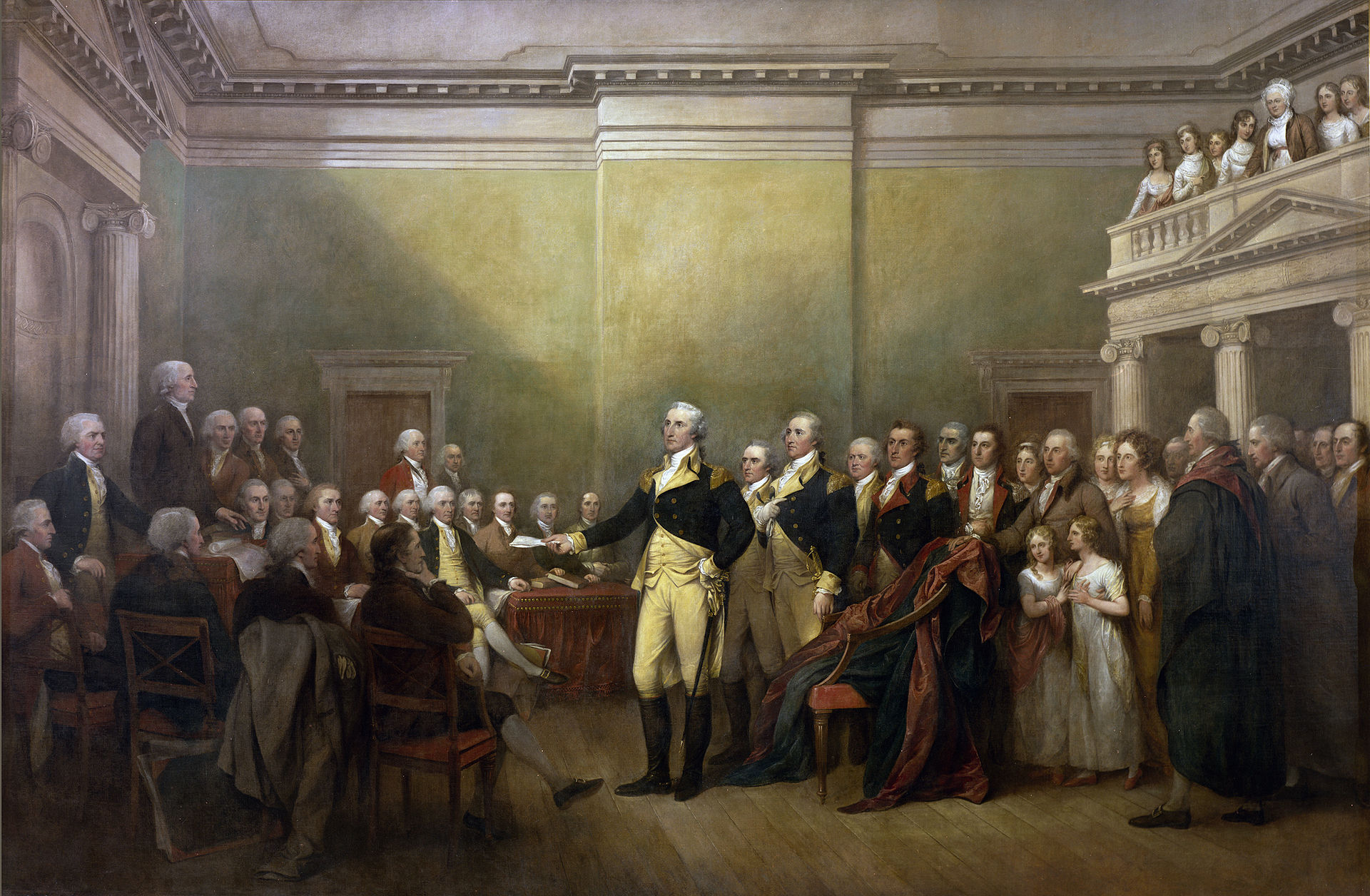On this date in 1796, near the end of his second term as president, George Washington published The Address of Gen. Washington to the People of America on His Declining the Presidency of the United States. Better known subsequently as his “farewell address,” it is his announcement of retirement from the presidency and from public life. He says, moreover, that he had wanted to retire after his first term but that considerations of duty had dissuaded him: “The strength of my inclination to do this previous to the last election had even led to the preparation of an address to declare it to you; but mature reflection on the then perplexed and critical posture of our affairs with foreign nations and the unanimous advice of persons entitled to my confidence impelled me to abandon the idea.”
Washington’s address is cited less often than it used to be – though once revered as “a civic Scripture,” it is “now almost forgotten,” in the words of journalist John Avlon. One tradition that lives on is the annual reading of the address in the Senate on Washington’s birthday.
The address’s most frequently cited passage is perhaps a paragraph on the essential place of morality, and particularly of religion, in civic life. The address deals with many other topics, lesser known but still worth citing, and thus I’m hesitant to cite this paragraph again, but it aligns so closely with Acton’s mission that I can’t skip over it:
“Of all the dispositions and habits which lead to political prosperity, religion and morality are indispensable supports. In vain would that man claim the tribute of patriotism who should labor to subvert these great pillars of human happiness – these firmest props of the duties of men and citizens. The mere politician, equally with the pious man, ought to respect and to cherish them. A volume could not trace all their connections with private and public felicity. Let it simply be asked, Where is the security for property, for reputation, for life, if the sense of religious obligation desert the oaths which are the instruments of investigation in courts of justice? And let us with caution indulge the supposition that morality can be maintained without religion. Whatever may be conceded to the influence of refined education on minds of peculiar structure, reason and experience both forbid us to expect that national morality can prevail in exclusion of religious principle.”
If the connection with Acton isn’t clear enough already, we can look to the paragraph immediately following, in which Washington all but gives an endorsement of think tanks:
“It is substantially true that virtue or morality is a necessary spring of popular government. The rule indeed extends with more or less force to every species of free government. Who that is a sincere friend to it can look with indifference upon attempts to shake the foundation of the fabric? Promote, then, as an object of primary importance, institutions for the general diffusion of knowledge. In proportion as the structure of a government gives force to public opinion, it is essential that public opinion should be enlightened.”
In other words, virtue is necessary for a free society to function. Such a society is dependent on knowledge of its foundations, and thus on institutions to spread that knowledge, since civil society is only as good as the individuals it comprises.
Washington’s address deals extensively with the Union, characterizing it as a preeminent good that ought to be closely guarded. He makes some allusion to regional tensions that would erupt into the Civil War seven decades later. Following that he examines even more extensively the “spirit of party,” which he saw as a great danger to the new nation. Many of his statements in this regard seem prophetic, even more so in the polarized atmosphere we have now.
“The alternate domination of one faction over another, sharpened by the spirit of revenge natural to party dissension, which in different ages and countries has perpetrated the most horrid enormities, is itself a frightful despotism….In governments purely elective, [a spirit of party is] not to be encouraged. From their natural tendency it is certain there will always be enough of that spirit for every salutary purpose; and there being constant danger of excess, the effort ought to be by force of public opinion to mitigate and assuage it. A fire not to be quenched, it demands a uniform vigilance to prevent its bursting into a flame, lest, instead of warming, it should consume.”
We could keep quoting the address all day, but I only wanted to give a few pertinent samples here. All Americans would benefit, though, from reading the entire text. Washington isn’t called the “Father of his Country” for nothing, and 223 years later his words have lost none of their relevance. Idaho Senator Dirk Kempthorne, who was chosen to read the address in the Senate in 1993, wrote afterwards: “The fact that his words were written as a guiding light for the future of this nation makes the actual moment of the delivery of the speech timeless…as citizens we must never lose our exposure and connection to the principles and wisdom of our Founding Fathers.”
(Homepage photo credit: public domain.)

